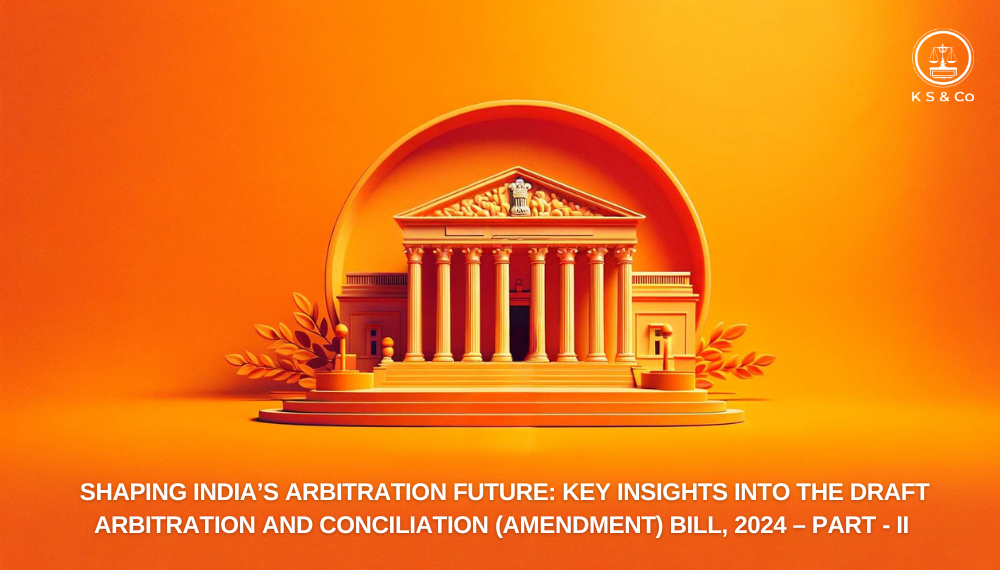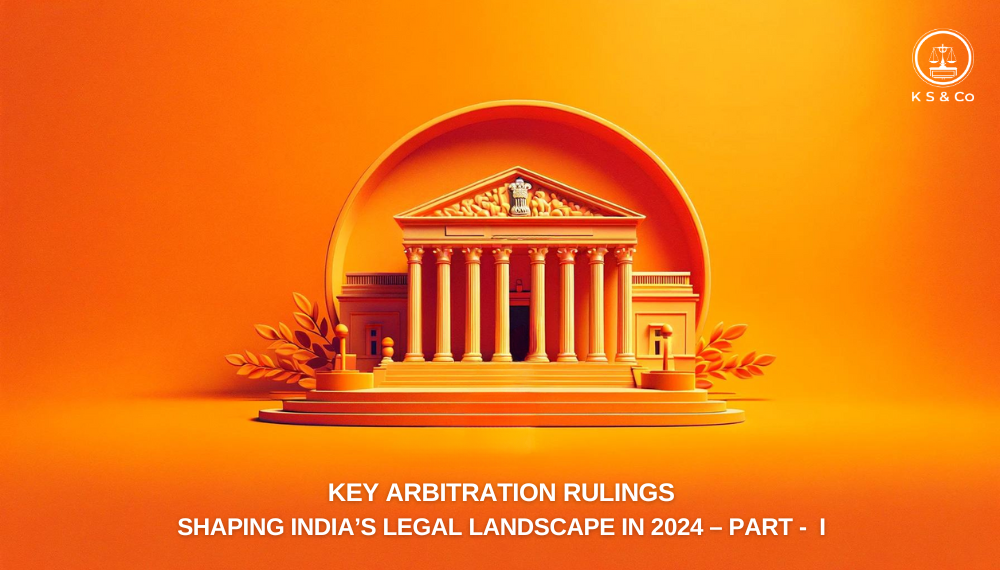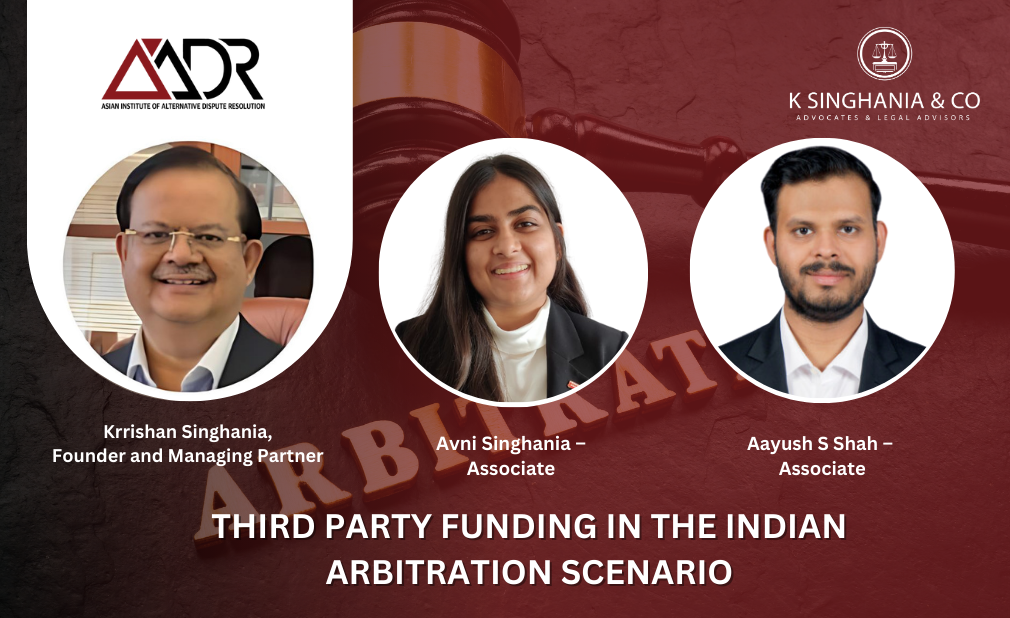Arbitration is a creature of contract. Generally disputes relating to rights in personam are considered to be arbitrable and disputes pertaining to right in rem are non-arbitrable and are required to be adjudicated by a court of law.
Some of the disputes that are considered to be non-arbitrable are Matrimonial disputes, matters relating to Guardianship, Testamentary matters, Insolvency matters, Criminal matters, matters relating to Charities or Charitable Trusts and Winding up of a company. This list is not exhaustive; however barring the above, most of the other disputes can be referred to arbitration and resolved through it.
Expanding Scope of Arbitration
Arbitration, as a mode of dispute resolution, is gaining popularity and considering the huge pendency of cases in the courts of law, the courts in India are leaning towards alternate dispute resolution mechanisms like mediation, arbitration etc. The scope of matters that can be referred to arbitration is gradually expanding; earlier it was considered that the Arbitral Tribunal cannot grant specific performance of contract. There were conflicting views taken by different High Courts upon the issue as to whether the disputes wherein the Plaintiff seeks specific performance of contract are arbitrable or not. However, the Supreme Court of India in the case of Olympus Superstructures Pvt. Ltd v. Meena Vijay Khetan & Ors. on 11 May, 1999 put the controversy to rest by ruling that “disputes relating to specific performance of a contract can be referred to arbitration” paving the way for parties seeking relief of specific performance of contract to choose arbitration as a mode of dispute resolution. Also, the Supreme Court of India in the case of A. Ayyasamy v. A. Paramasivam has held that cases where there are serious allegations of fraud and malpractices on the part of respondents, then such a situation can only be settled in court through furtherance of detailed evidence by the parties and such a situation cannot be properly gone into by the Arbitrator. However, this position is taken by the Supreme Court only where allegations of fraud and malpractices are of serious nature and does not apply to cases where allegations are of not-so-serious nature or are mere allegations of fraud. Thus presently cases involving serious allegations of fraud are not arbitrable in India. Therefore it can be seen that the scope of matters which can be referred to arbitration is gradually expanding.
Arbitrability of Tortious claims
Salmond defined tort as, “Tort is a civil wrong for which the remedy is a common law action for unliquidated damages, and which is not exclusively the breach of a contract or the breach of a trust, or other merely equitable obligation”. However, sometimes claims under contract and claims under torts may be closely interconnected. Contract defines the rights and obligations of the contracting parties while in addition to agreement-based rights and obligations, “tort” law imposes all sorts of implied rights and obligations independent of what parties may have formally agreed to. The foremost “tort” obligation is to use reasonable care so as to avoid damage to others. The failure to use reasonable care is negligence where a claim for damages is the remedy. The dichotomy between contractual and tortious act claims creates an issue of arbitrability. In respect of cases where compensation is claimed for tortious acts, the question still remains whether all tortious claims are arbitrable or not. It is not uncommon that parties to an agreement try to circumvent arbitration clauses by formulating their contractual claims as unlawful act claims, and then contending that those claims do not fall within the ambit of the arbitration clauses. The competency of the arbitral tribunal in granting punitive damages and mandatory injunctions has also been questioned by many. However, the judicial decisions show that even though a claim may not directly arise under the contract/agreement which contains an arbitration clause, however if there was sufficient close connection between that claim and the transaction under the contract, it will be covered by the arbitration clause and hence arbitrable. It is well settled by a catena of decisions that the expressions in the arbitration clause or arbitration agreement such as “in relation to or in relation to this contract” or “all” or “any disputes arising out of the contract” are of widest possible amplitude and even claims based on tort would fall within this clause if it is found that such claims are intimately, directly or inextricably connected with the contract. The Guwahati High Court in Bharat Heavy Electricals Pvt. Ltd. v. Assam State Electricity have laid down following guidelines in respect of arbitrability of tortious claims: (i) Claims based on torts may depending upon the nature of the claim and the scope of the arbitration clause, be subject matter of arbitration. (ii) Arbitrability of such claims will depend upon the precise nature of the claims. (iii) A claim, which lies in tort, shall be arbitrable if it “arises out of” or is “related to” the contract, that is to say that it arises out of the terms of the contract or is consequential upon any breach thereof. (iv) If the claims are intimately connected with the contract and the arbitration clause is couched in wide terms then such claims would be arbitrable. (v) If recourse to the contract, by which both the parties are bound, would be necessary for the purpose of determining whether the claim in question was justified or not, it may be held that it is a claim “arising out of” and in any event “related to ” the contract and arbitrable. (vi) A claim which does not directly arise under the contract which contains an arbitration agreement will also be covered by the arbitration clause if there was sufficient close connection between the claim and the transaction under the contract. (vii) The question whether claim based on tort is directly and inextricable connected with the contract or not has to be decided on the facts of each case and the language of the arbitration clause. In the case of Bougainvillea Multiplex and Entertainment Center Pvt. Ltd. v. Shankar Rai , the plaintiff had not only claimed relief under the agreement but had also filed a suit for damages under tort by claiming damages for the losses suffered by him because of rise in the cost of equipment he was then to install and loss of business. The Delhi High Court in the said case held that the agreement was quite sketchy and not detailed hence, the claim for damages under tort was beyond the terms and conditions of the contract and the matter cannot be referred to arbitration. It further held that, “had the agreement contained detailed provisions as to the consequences of breach of contract on both the sides, the Arbitrator would have jurisdiction to entertain the claim in the suit”. Recently in the case of Krishan Gopal v. Parveen Rajput in Delhi High Court, wherein the Plaintiff had alleged a breach of collaboration agreement by the Defendant had filed a civil suit and sought Mandatory Injunction and Exemplary/Punitive Damages from the Defendant. It was also contended on behalf of the Plaintiff that an Arbitral Tribunal is not competent to grant Mandatory Injunction and Exemplary/Punitive Damages. The Delhi High Court held that where a suit is filed by a party for damages under tort and is beyond the terms and conditions of the contract, the matter cannot be referred to Arbitration under the terms of the agreement. However if the agreement contains detailed provisions as to the consequences of breach of contract on both the sides, the Arbitrator would certainly have jurisdiction to entertain the claim in the suit. It was held that, “The fact that the compensation may have been provided for delay in construction does not itself mean that the owner – Plaintiff cannot claim any damages over and above the penalty stipulated. It is for the Plaintiff to raise such claims before the Tribunal which will deal with them in accordance with law”. It was further held that the entitlement or otherwise to exemplary/punitive damages is an issue to be determined by the Tribunal. So long as such claim arises in respect of the subject matter of the agreement, the dispute is arbitrable. Damages are one form of compensation which can be awarded in a civil dispute. It was observed that “An arbitral tribunal has all the trappings of a civil court, including the power to award all forms of injunctions and damages, where a case is made out”.
Comments
The pro arbitration approach of the Indian Judiciary is praise worthy considering the huge pendency of cases in the Indian Courts. The courts are considering that once it is conceded that the matter is covered by the arbitration agreement, the court should lend its weight to the enforcement of the agreement. If the parties intended that their disputes of a certain nature should be referred to arbitration, the Court should not, in the absence of any special reason to the contrary, nullify that agreement. In view of the expanding scope of arbitration, it is considered necessary that arbitral tribunal should be vested with all the powers analogues to that of a civil court to grant all types of injunctions, exemplary damages etc. However, then the narrow scope of judicial intervention in challenge to the arbitral award under Section 34 of the Arbitration and Conciliation Act, 1996 needs to be reviewed. The Supreme Court in Associate Builders v. Delhi Development Authority , has held that an arbitral award cannot be set aside on the grounds of “error in facts”, unless the arbitrator’s approach is arbitrary or capricious. The Supreme Court held that the courts entertaining the application under S. 34 is not a first appellate court and cannot interfere with ‘errors of fact’. In such situations the party to arbitration where there is serious ‘errors of fact’ in the arbitral award may be left remediless. Hopefully this issue will be addressed by the Indian Legislature and Judiciary in the near future which will strike a balance between empowering the arbitral tribunals for speedy disposal of disputes and also strive to rule out any injustice to the parties on account of “errors of facts” by the Arbitral Tribunals.






